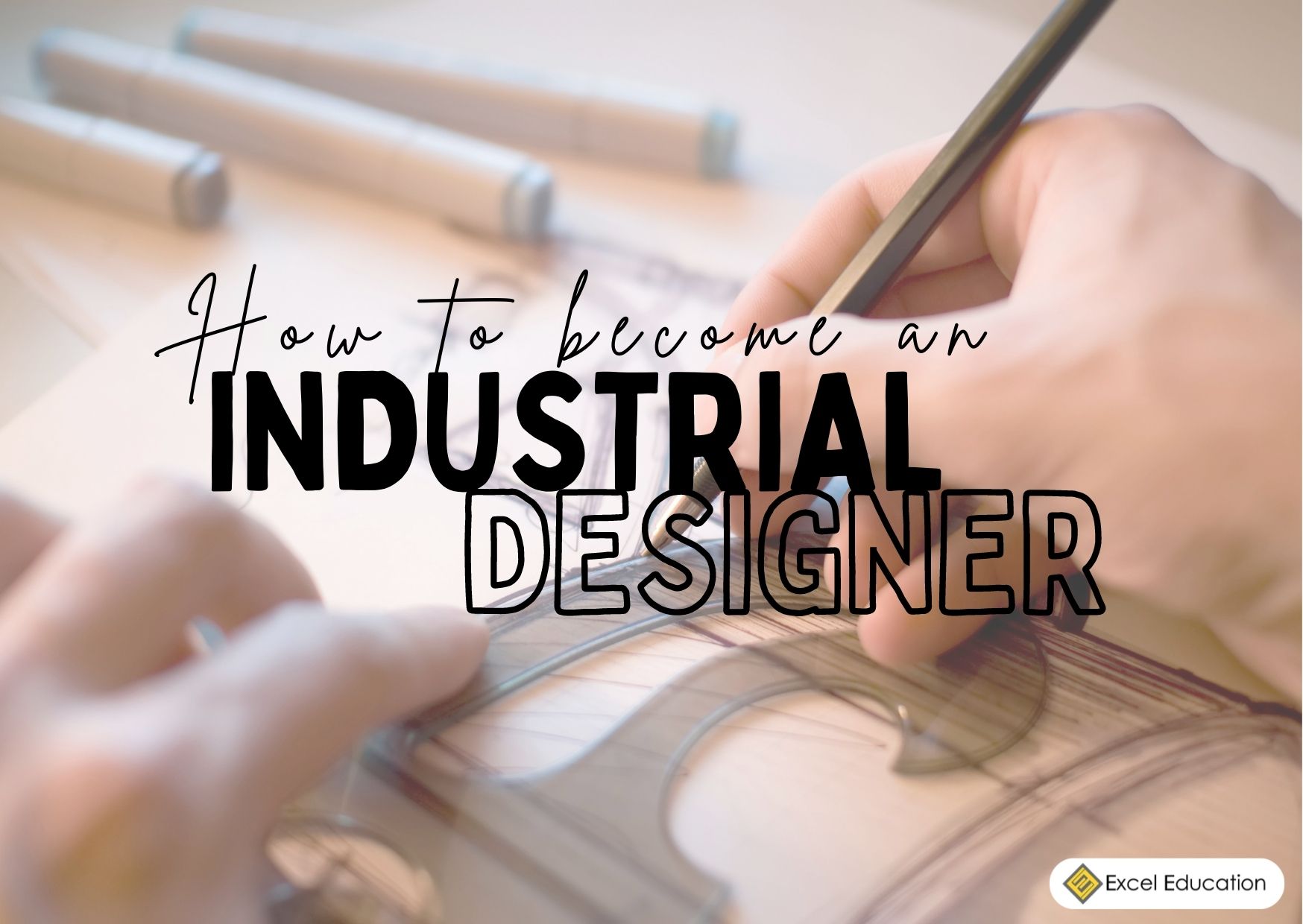
Are you a creative and innovative person? Do you have an artistic mind with engineering and computer hard skills? Do you wish to create products that will make society easier, safer and more enjoyable?
If you answered yes to the questions above, a degree in Industrial Design would most definitely favour you! Let’s dig a little deeper into the industrial design field and find out exactly what it is and if the career path is right for you.
What is Industrial Design?
Industrial design can be defined as the features that make up a shape or pattern of a product through industrial processes.
The study of Industrial Design is the study of designing products that aim to be appealing and unique yet thrive for functionalism and practicality. This area of study uses a combination of theoretical concepts of materials and processes with the designs, shapes and patterns.
Industrial designers’ job is generally based on using their creativity and imagining how consumers might use a product and test multiple versions of the products to test it’s functionality. Many times, you will probably work closely with engineers, production experts and consumer market experts. Some industrial designers focus on developing ideas for improvement for general products such as bicycles, furniture, cars and housewares whilst some industrial designers specialise in specific product categories such as smartphones or equipment to aid individuals with disability.
Common roles and responsibilities of Industrial Designers include:
- Conducts product research and analyses to fulfil commercial, cultural and physical requirements
- Formulates designs through preparation of sketches, diagrams, illustrations, samples and models, on paper or using computer software
- Conducts consultations with clients, stakeholders and manufacturing parties for design solutions
- Work alongside other experts: mechanical engineers, manufacturer to conduct evaluation of the functionality and worth of design concepts
- Selects, specify functional and practical materials for manufacturing process
- Facilitates entire production process, along with preparing prototypes and samples
Skills Needed to Become An Industrial Designer
- Analytical skills
Industrial designers should be able to analytical think using logical reasoning to be able to design and produce designs on products that’ll improve the pre-existing products or create a new market entirely
- Creativity
Industrial designers should be able to express their ideas through designs. Creativity is important in ensuring a successful career as you’d require to be innovative in your work and accurately integrate the ever-evolving technologies into your new product.
- Computer Software Skills
Industrial designers are required to use computer-aided-design softwares to make an accurate representation of their design concepts. But fret not, many universities provide their students with a Computer Aided Design (CAD) class to teach them the practical principles needed to use the software!
Career Options for Industrial Design Graduates
To become an Industrial Designer in Malaysia, you will need at least a Bachelor’s Degree in Industrial Design, along with an impressive portfolio of your designs to impress your employee.
All industrial designs in Malaysia are authorized by the Industrial Designs Registry at the Intellectual Property Corporation of Malaysia (MyIPO). To fulfil the requirements of a registrable design in Malaysia, you would need to fulfil the requirements based on the Industrial Designs Act 1996.
Besides becoming a Industrial Designer, here are other career pathways you could embark on:
- Interior Designer
- Furniture Designer
- Automotive Designer
- Movie Set Designer
- Software Designer
*NOTE: It is important to note that some of these alternate career pathways require different qualifications.
General Entry Requirements for Studying Industrial Design in Malaysia
ACADEMIC REQUIREMENTS
Qualification | Scores |
A-Levels | Min. 2E’s |
STPM | Min. CGPA 2.00 in 2 subjects |
UEC | Pass with min. 5Bs |
Matriculation/Foundation | Min. GPA 2.00 |
Diploma | Min. GPA 2.50 |
*NOTE : Different universities have different entry requirements. Contact us for more information.
LANGUAGE REQUIREMENTS
Qualification | Scores |
MUET | Min. Band 1 (Local students) Min. Band 3 (International students) |
IELTS | Min. 5.0 |
TOEFL (IBT) | Min. 35 |
Pearson English Test | Min. 36 |
*NOTE : Different universities have different entry requirements. Contact us for more information.
IMPORTANT: Most universities also require a portfolio showcasing your previous work/designs as part of the entry requirement.
Top Universities to Study Industrial Design in Malaysia
#1 Asia Pacific University (APU)

Program Offered | Bachelor of Industrial Design (Hons) |
Program Duration | 3 years (Full time) |
Intake | June and November |
Indicative Fee (2021) | RM 81,800 (Local Students) RM 88,200 (International Students) |
#2 First City University

Program Offered | Bachelor of Furniture and Product Design (Hons) |
Program Duration | 3 years (Full time) |
Intake | February and September |
Indicative Fee (2021) | RM64,630 (Local students) |
#3 LimKokWing University

Program Offered | Bachelor of Arts in Industrial Design (Hons) |
Program Duration | 3 years (Full time) |
Intake | February and August |
Indicative Fee (2021) | CTA |
Recommended Articles to Read
Top 5 Universities to Study Multimedia Design in Malaysia (2020)
Everything you Need to Know to Become a Graphic Designer in Malaysia
Top Degree Courses to study if you love Arts
Contact us to find out more!
Student enquiries:
Call/ WhatsApp: +60182414802
Email: [email protected]
About the Author

Raveena Rakni Suresh Raj
Leo baby & psych major


